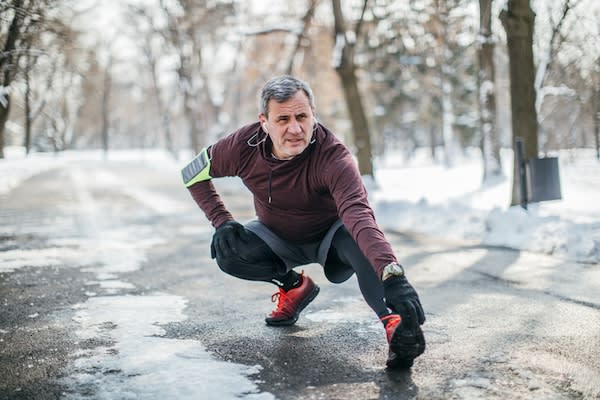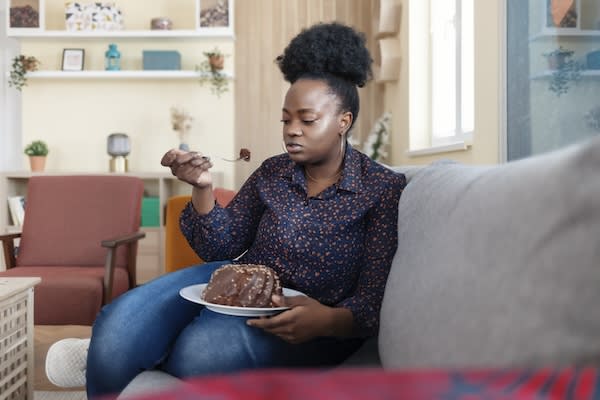Five tips to lower blood pressure without medication
[5 MIN READ]
In this article:
-
While some people need medication to keep their blood pressure at a healthy level, there are several lifestyle changes you can make to lower it, too.
-
We offer five tips for lowering your blood pressure without medication.
-
Talk to your doctor about the best ways for you to lead a healthier life.
How to lower blood pressure without medication
There’s a reason why your health care provider probably checks your blood pressure each time you see them for a check-up: High blood pressure is one of the main risk factors for heart disease and other chronic problems.
But why, exactly, is blood pressure so important, and how can you control this important function of your body? Here, we look at the basics of blood pressure, and five tips to lower your blood pressure.
What is blood pressure?
Your blood pressure is the measure of the force of blood pushing against your blood vessels’ walls. High blood pressure, or hypertension, is when the blood pressure is elevated in a way that increases a person’s lifetime risk of developing coronary artery disease, stroke or congestive heart failure.
Blood pressure is measured using two numbers: Systolic blood pressure measures the pressure in your arteries when your heart beats. Diastolic blood pressure measures the pressure in your arteries when your heart rests between beats. When a health care provider takes your blood pressure, they will refer to it as systolic over diastolic, or “120 over 80.” It is written as 120/80 mmHG.
According to the Centers for Disease Control and Prevention, a normal blood pressure is anything that is less than 120/80 mmHG. A patient has high blood pressure if their numbers are consistently 140/90 mmHG or higher.
The best way to determine if you should take steps to lower your blood pressure is to talk to your health care provider.
Five tips to lower your blood pressure without medication
If you are diagnosed with high blood pressure, your health care provider may prescribe medication. “For some people, blood pressure medication may be the first medication they are asked to take,” says James Beckerman, M.D., F.A.C.C., a cardiologist at Providence Heart Institute. “That could be a difficult line to cross.”
But medication isn’t the only path to lower blood pressure. Here, we share five recommendations for lowering blood pressure without medication by living a healthy lifestyle.
1. Get moving
“It is entirely known why physical activity lowers blood pressure,” says Dr. Beckerman. “We do know that it improves blood flow to the muscles and extremities. In doing so, exercise lowers the overall resistance to blood flow throughout the body, which in turn lowers blood pressure.”
Each week, your heart needs 150 minutes of cardiovascular exercise. You can get this regular physicaly activity by engaging in such activities as:
- Walking
- Jogging
- Swimming
- Cycling
- Dancing
2. Reduce your salt intake
“One of the ways your blood regulates its volume of water is by regulating salt,” says Dr. Beckerman. “Our kidneys absorb or excrete salt. “When there is more water in the body, there is more water in the blood vessels, which increases pressure on the walls of blood vessels.”
You can make the following dietary changes to reduce your sodium intake:
- Avoid processed foods.
- Use low-sodium or no-salt-added products.
- Cook at home more often.
- Choose lean meats and dairy products and eat plenty of fruits and vegetables.
- Read food labels carefully.
3. Quit smoking
Nicotine, which is the main active ingredient in cigarette smoke, restricts your blood vessels, which can lead to high blood pressure. You can use these resources to help you quit smoking:
- Smoking cessation classes
- Local support groups
- Medicines to help you quit
- Nicotine replacement therapies, such as patches or gum
4. Limit alcohol
Alcohol consumption narrows your blood vessels, which leads to high blood pressure. The American Heart Association recommends that you stick to the following guidelines:
- Men should drink no more than two alcoholic beverages per day.
- Women should drink no more than one alcoholic beverage per day.
You should also not drink alcohol when you are taking certain medications. Talk to your doctor about whether any amount of alcohol is safe for you.
“It’s important to recognize that the American Heart Association’s recommendations are not for a goal amount of alcohol to consume,” says Dr. Beckerman. “Most recent data suggests that any alcohol intake is not good for you.”
5. Sleep well
Sleep affects blood pressure because it helps manage stress hormones like cortisol. When you don’t sleep enough, your body has difficulty regulating these hormones, which leads to high blood pressure.
According to the Centers for Disease Control and Prevention, adults should get at least seven hours of sleep each night. For better sleep, you should:
- Ensure your room is dark, quiet and cool.
- Stop using screens at least one hour before sleep.
- Go to sleep and wake up at the same time each day.
- Avoid caffeine and alcohol in the evening.
The added bonus about all of these tips is that they help with more than just blood pressure. If you work on all five, or even just a few of them, you will likely find yourself experiencing much better health overall.
Contributing caregiver
James Beckerman, M.D., F.A.C.C., is a cardiologist at Providence Heart Institute.
Find a doctor
If you are looking for a Providence primary care provider, you can search for one who’s right for you in our provider directory.
Download the Providence app
We’re with you, wherever you are. Make Providence’s app your personalized connection to your health. Schedule appointments, conduct virtual visits, message your doctor, view your health records and more. Learn more and download the app.
Related resources
The many ways alcohol affects your health
How and when to take your blood pressure
This information is not intended as a substitute for professional medical care. Always follow your health care professional’s instructions.





